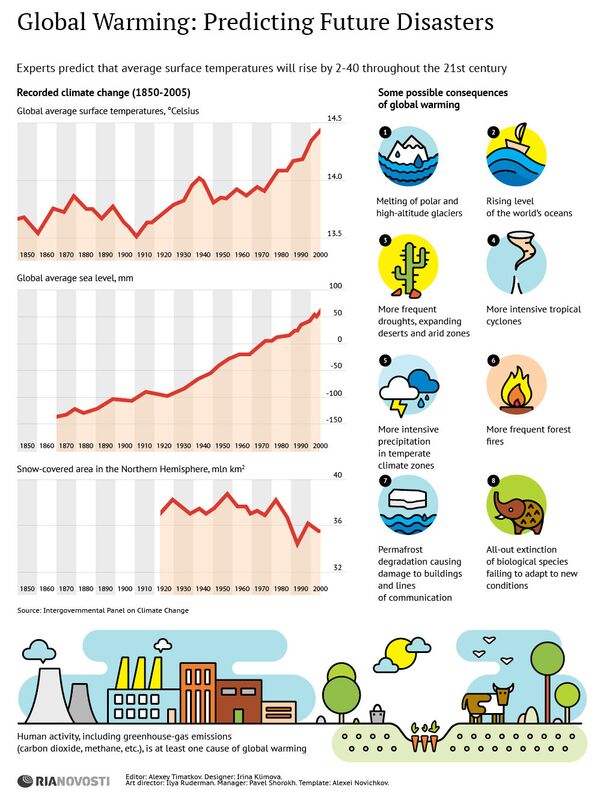SALEKHARD (Northern Russia), September 24 (RIA Novosti) – Melting permafrost and warmer temperatures in the Arctic could trigger the release of both known and new infectious diseases in the region, a Russian scientist warned Tuesday.
Speaking at “The Arctic – Territory of Dialogue” forum, Boris Revich from the Moscow-based Institute of Forecasting said it is essential to carry out research now in order to reduce the risks of outbreaks.
“There is a risk that the melting of the permafrost could release the anthrax virus from thawed cattle burial grounds,” Revich said. “We need to understand whether it’s a risk, whether we can forecast it or whether we can forget about it.”
The scientist cited the appearance of malaria and tick-borne encephalitis in the Russian north as examples of the health consequences of warmer temperatures.

“Something that we know nothing about may surface, so our task right now is to test blood samples taken from deer and find out what they are infected with,” Revich said.
“We need some points of reference. Maybe they carry infections that are dangerous for people, maybe not, but we shouldn’t ignore the issue,” he said.


